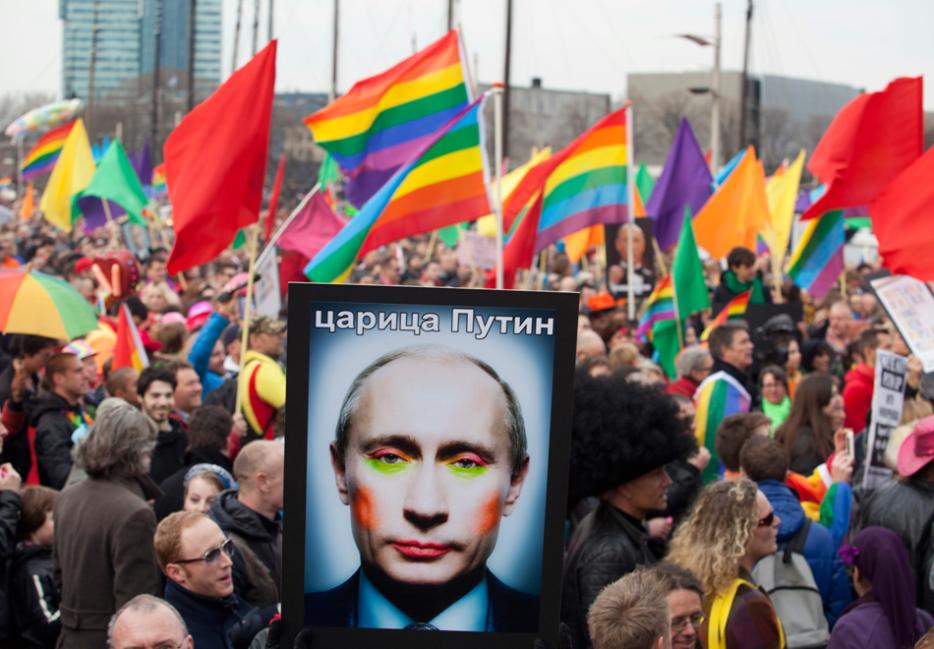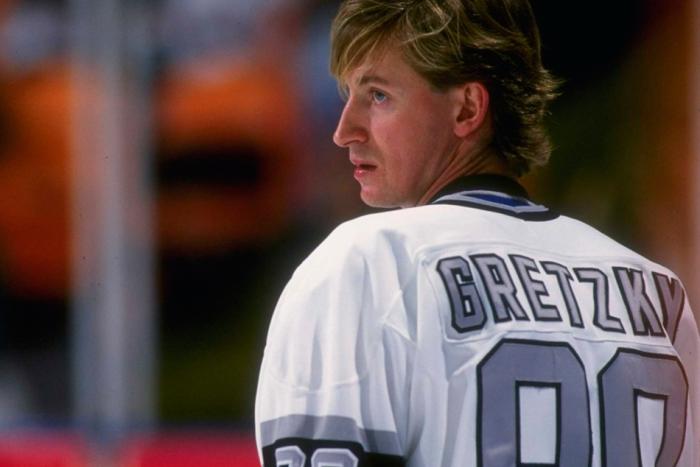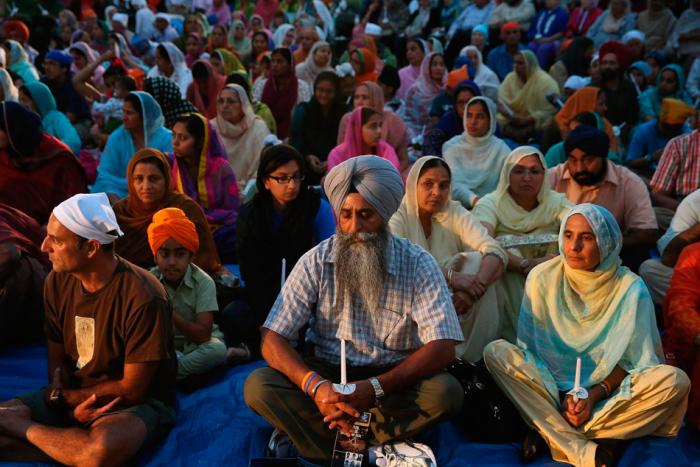One of the first reactions to Russia’s brutish new anti-gay laws was to call for a boycott of the 2014 Winter Olympics in Sochi, a demonstration to show Russia that the rest of the world doesn’t take such abrogations lightly. But in Olympic history, this sort of non-action has proven to be a weak tool. The last two wide Olympic boycotts, in Moscow and Los Angeles, had no lasting effects, and the people who showed up had a big party, celebrated themselves, and mostly forgot about the people who were sitting at home making their silent point.
The second reaction, hyped this week by social media’s gay spokesmen Stephen Fry and George Takei, has been to move them to a city already set up for the Games, such as Vancouver or Lillehammer. That would be unprecedented, I think, as well as unlikely. The International Olympic Committee doesn’t get out of bed for less than 10 figures, and moving everything so late in the process sounds like a lot of work. And as the IOC has said repeatedly, the Olympics are not political. (Fry made short work of that particular bit of nonsense, though I doubt the IOC sets much store by public school Greek etymologies.)
But even aside from the unlikelihood of moving the Games at this stage, I don’t think it’s the best thing we who oppose Russia’s new policies could do.
Fry used the 1936 Olympics in Berlin as a pretty fair analogue for what’s happening now. The German government had, by then, already passed the first of its anti-Semitic laws, and Mein Kampf had been published more than a decade earlier. The world knew what was up. And yet, the world showed up and played its games. As Fry says, this could very well have given the German government the boost it needed to play its Sudetenland confidence game a couple of years later, secure in the knowledge that the world would rather get on with things than confront them on issues, like Jews and Czechoslovakia, that they didn’t really care too much about.
Fry imagines how much different things might have been if the world instead did what he’s suggesting now: Germany would have known what the world thought of it, and maybe it have been a little less ballsy in what it did next.
Maybe.
But imagine what would have happened if, instead of not showing up, the world showed them up. What if Canada celebrated basketball silver medalist Irving Maretzky’s Jewishness, and the US did the same with Samuel Balter, who was on the team that beat them? And what if Austria did the same with Robert Fein, Belgium with Gérard Blitz, and Hungary with Bródy, Sárkány, Kárpáti and double-gold winter Endre Kabos? And what if these nations’ celebration of their Jewish champions gave Germany’s own fencing silver medalist Helene Mayer, already resident in the US for fear of persecution, the chutzpah to raise her hand with theirs instead of lifting her swastika-bedecked arm in a Nazi salute on the podium?
It couldn’t have happened, of course, because so much of the rest of the world was, in fact, not particularly bothered by those German laws.
But things are different now.
There aren’t a lot of publicly out 2014 Winter Olympians (New Zealand speed skater Blake Skjellerup is a notable exception), though there are many alumni and other winter athletes. What if CBC and NBC and BBC produced mini-docs on Brendan Burke, Jeffrey Buttle, Toller Cranston, John Curry, Nancy Drolet, Rudy Galindo, Joan Guetschow, Matthew Hall, Scott Hamilton, Edel Therese Høiseth, Angela James, Peter Karlsson, Sanne van Kerkhof, YIva Lindberg, Barbara Jezeršek, Robert McCall, Ondrej Nepela, Ryan O’Meara, Brian Orser, Anja Pärson, Brian Pockar, Ronald Robertson, Erik Schinegger, Vibeke Skofterud, Sarah Vaillancourt, Johnny Weir, Marieke Wijsman, David Wilson, Chris Witty and Ireen Wüst? What if every nation that supports same-sex rights sent out two flag bearers, one with the national flag, and one with the rainbow flag? (And what if this highlighted the fact that having a Gay Games Olympics as a “safe” alternative these days is like having a Women’s Olympics?) What if this prompted a few latter-day Helene Mayers to raise their hands? What if it prompted more than a few? What if, in the face of one of the most restrictive anti-gay laws on the books in a non-Sharia nation, the Sochi Olympics became the gayest Olympics in modern history? (We obviously have a ways to go before being as homo-friendly as the ancient Games.)
The key to the widespread success of the gay rights struggle over the past few decades has been visibility. Kiss-ins in front of the Eaton Centre, sitcoms, people living their lives out of the closet. As Congresswoman Tammy Baldwin memorably said in her speech at the 1993 March on Washington, “If you dream of a world in which you can walk down the street holding your partner’s hand, then hold her hand … and you will live in such a world.”
I wouldn’t suggest people in Uganda or Iran follow her advice, but the global community, on the world stage in Sochi, can.
ACT-UP developed one of the most successful activist slogans of the 20th century in the 1990s with “Silence = Death.” And boycotts, no matter how noisy, are a form of silence. They are negative actions, a withholding, an absence. If we’ve learned anything from the same-sex civil rights victories of the past couple of decades, it’s that showing up, and showing off, wins battles. Let’s not take our luges and skulk off. Let’s bring the game to Russia.






